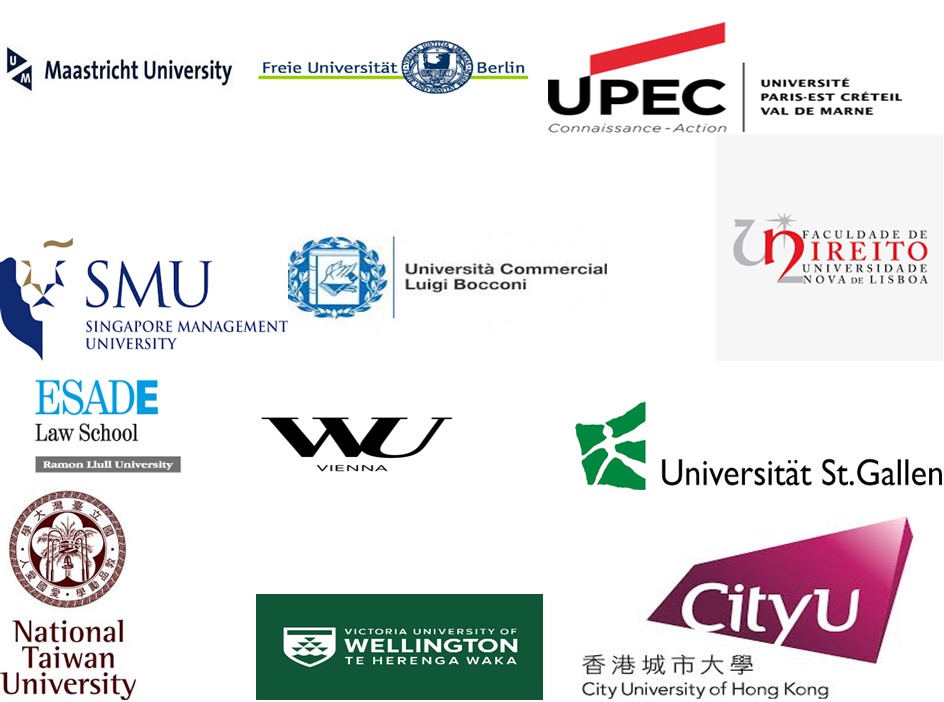Towards Cultural Standardization? The interplay between (inter)national and European economic law and culture: how much ‘culture’ is left? Themis Seminar (webinar)
This year the Themis seminar will focus on the interplay between the law regulating the economic policy of states on the one hand and the legal rules that are relevant in the field of cultural policy (including languages). In the European Union for example, the EU has no exclusive or shared competence in the field of culture and can only support the initiatives taken by Member States. On the other hand, the EU has a strong competence to regulate the internal market. This entails that there is a risk that EU internal market policies can invade the cultural prerogative of member states. Vice versa, national cultural policies may take precedence over EU internal market initiatives as overriding reasons of public interest.
Contact:
Elke Hundhausen
Faculty of Law
INFO

The prevailing economic system in most parts of the world is the market economy system in which decisions regarding investment, production and distribution are guided by price signals created by the forces of supply and demand. What consumers buy on the market is often depending on their culture which is shaped by shared beliefs, customs, behaviours, and attitudes that characterize a society. In recent times, it seems that globalisation and market opening, increased competition, the fostering of concentration and the exploitation of economies of scale in industries all contribute to the creation of a rather homogenous culture.
In the European Union, the European Commission advances standards and standardisation processes as essential for Europe to maintain its leadership in technical development and global trade as the European hub for global standardisation. Similar trends can be seen in other parts of the world. Nevertheless, while standardisation facilitates international trade (e.g. by ensuring compatibility and the interoperability of components, products and services), may reduce costs and may contribute to innovation, it may also put limits on the flowering of cultures of national states and limit national and regional diversity.
During the Themis seminar the interplay between economic and cultural policies will be discussed and speakers will try to reflect on whether there is still room for national cultural (and linguistic) preferences and policies in the market economy in light of globalisation and standardization efforts. National experiences and policies can be discussed, as well as cooperation efforts between states, regions, organizations etc. to promote culture and cultural heritage.
Programme on Thursday 8 April
| Central European Summer Time (UTC+02:00) | |
|
10.15 |
Opening and Word of Welcome by Prof. dr. Jan Smits, dean of Maastricht University |
|
10.25 |
Setting the scene: The link between Culture and the Internal Market by |
| 10.50 |
The Changing Notion of Culture and Its Implications on International Law by |
| 11.15 | Q & A |
| 11.35 | Break |
| 12.05 |
Union Citizenship and Cultural Diversity by Prof. dr. Eleanor Spaventa, University |
| 12.30 |
The road from national protectionism to a common European culture of |
| 12.55 | Q & A |
| 13.15 | Lunch |
| 14.15 |
Application of Competition Rules on Manipulations on the Art Market: Authentication by Mr. Oliver Lenaerts, Contour lawyers |
| 14.40 |
Cultural Protectionism in the Audiovisual Sector by Aurélie Anne Villanueva, doctoral researcher at the European University Institute, Florence |
| 15.05 | Q & A |
| 15.25 | Final Comments and end of Day 1 |
Programme on Friday 9 April
| Central European Summer Time (UTC+02:00) | |
| 10.00 |
The Digital ‘YOU’ and ‘ME ‘ in a digital Single Market: How to protect European Cultural Diversity in the era of Digital Culture? by Dr. Matthias Zuβner, Wirtschaftsuniversität Wien |
| 10.25 |
Adopting a new Resue Culture in the EU: What is left from Member States’ Particularity in Corporate Insolvency Law? by Dr. Philipp Fidler, Wirtschaftsuniversität Wien |
| 10.50 |
The need for self-reliant local communities as an answer to the centralizing powers of technology by Prof. dr. Jan Willem Sap, Open University |
| 11.15 |
Standardisation of language and its counterforces: the effect on regional languages by Prof. dr. Leonie Cornips, Maastricht University |
| 11.40 | Q & A |
| 12.00 |
Closure and end of day 2 |
| 12.10 | Lunch |
| 13.00 | Student debate (students only, until 17.00) |

Also read
-
03 Oct 31 Dec11:00 - 15:30
Globalization & Law Network Seminar Series 2023 - 2024
The Globalization & Law Network is composed by a group of researchers of Maastricht University, coming from different backgrounds, who study the role that law plays in a globalizing society from a holistic perspective. Invited experts will give a presentation on a specific topic followed by a Q&A...
-
21 Oct 25 Oct
Master Class on Privacy Management and Data Governance
Practical guidance on how to successfully implement a comprehensive data governance model and clearly define key roles and responsibilities of those involved in the personal data governance process in the organisation in line with the application of the principle of “accountability”. Serves as a...
-
02 Dec 04 Dec
Emerging Issues and Challenges in Privacy and Cybersecurity
This 2,5 days training programme is a building block of the full Diploma Track on Privacy Management.